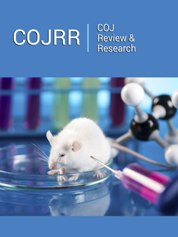- Submissions
Abstract
COJ Reviews & Research
Toxicity and Negative Effects of Selenium Nanoparticles on Male Nile Tilapia (Oreochromis Niloticus) Sperm at Supranutritional and Imbalance Levels
-
Open or CloseSanjay Singh Rathore*, Shivananda MH and Jayashri MS
Department of Aquaculture, College of Fisheries, Karnataka Veterinary, Animal and Fisheries Sciences University, India
*Corresponding author: Sanjay Singh Rathore, Department of Aquaculture,College of Fisheries, Karnataka Veterinary, Animal and Fisheries Sciences University,India
Submission: July 30, 2022; Published: September 19, 2022

ISSN: 2639-0590Volume4 Issue3
Abstract
In male reproduction and antioxidative systems, selenium plays a significant role. Although a lack of this element can harm the body’s organs, this metalloid can cause oxidative stress in other species, which has negative effects. Selenium nanoparticles (SeNPs) were evaluated for their spermatotoxicity in this study’s Nile tilapia (Oreochromis niloticus) using genotoxicity, antioxidant status, sperm quality, and histopathology. For 30 and 60 days, fish weighing an average of 70g (n=288) were fed SeNPs three times daily at varying dosages of 0, 0.1, 0.5 and 1mgkg diet. The fish were separated into four experimental groups (three repetitions). After a feeding trial of 30 and 60 days, at 1mgkg SeNPs on day 30 and at 0.5 and 1mgkg on day 60, spermatocrit percentage significantly decreased in comparison to the control group (p 0.05). SeNPs caused a decrease in computer-assisted sperm analysis parameters, particularly VCL, VSL, and VAP (p 0.05). Following the feeding experiment, fish fed with 0.1mgkg of SeNPs had the largest percentage of fast speed progressive sperm cells, which significantly decreased in a SeNPs dose-dependent way (p 0.05). Additionally, all SeNPs-treated groups had significantly higher levels of malondialdehyde and glutathione peroxidase in their seminal plasma (p 0.05). At 1mgkg SeNPs on day 60, sperm DNA damage significantly increased (p 0.05). Furthermore, spermatocyte and spermatid counts were higher in the maximum concentration of spermatozoa was found at the highest SeNPs dose, while the lowest and moderate SeNPs doses recorded the highest percentage of spermatozoa. These results suggested that non-optimal dosages of SeNPs might impair testis growth, cause oxidative stress and DNA damage in sperm, and diminish sperm quality.
Keywords: Nanoparticles; Nile tilapia; Selenium; Sperm
 a Creative Commons Attribution 4.0 International License. Based on a work at www.crimsonpublishers.com.
Best viewed in
a Creative Commons Attribution 4.0 International License. Based on a work at www.crimsonpublishers.com.
Best viewed in 







.jpg)






























 Editorial Board Registrations
Editorial Board Registrations Submit your Article
Submit your Article Refer a Friend
Refer a Friend Advertise With Us
Advertise With Us
.jpg)






.jpg)














.bmp)
.jpg)
.png)
.jpg)










.jpg)






.png)

.png)



.png)






